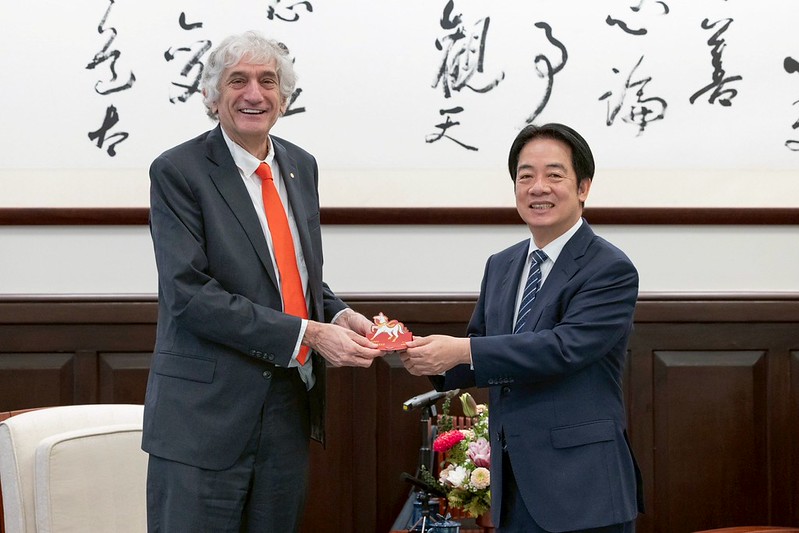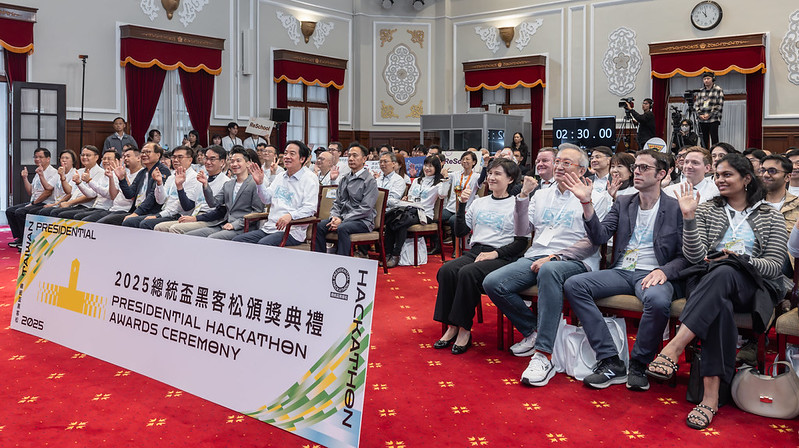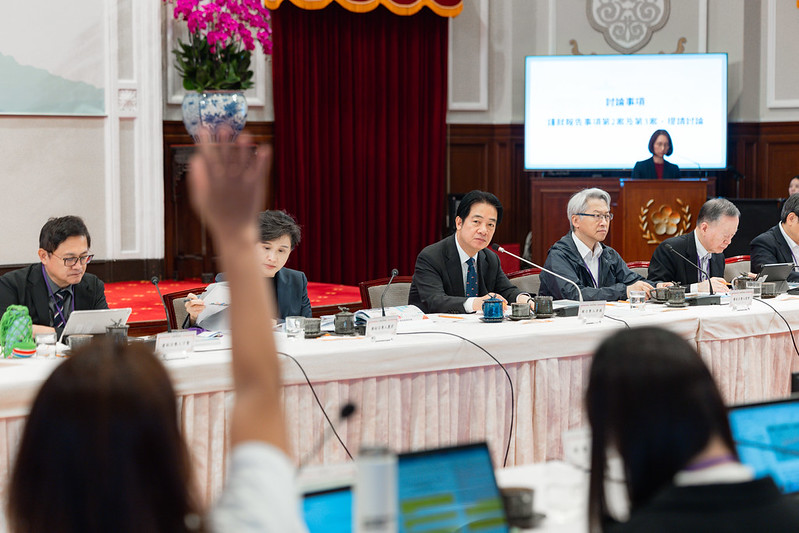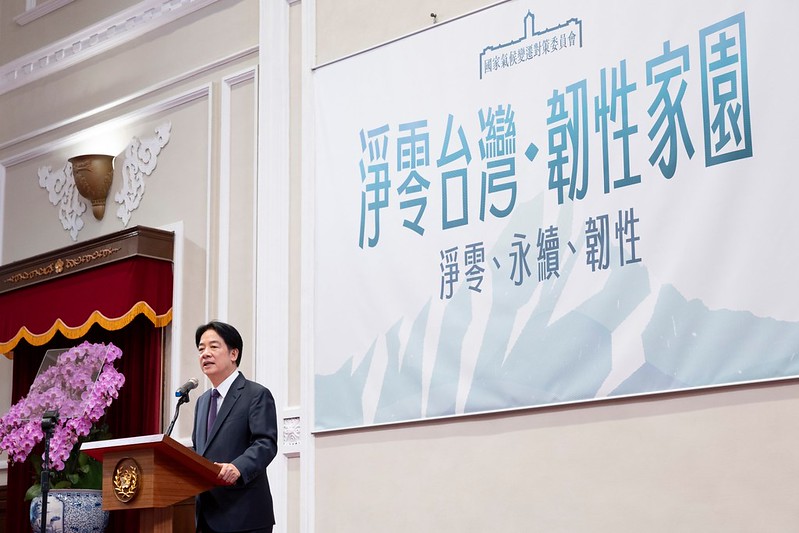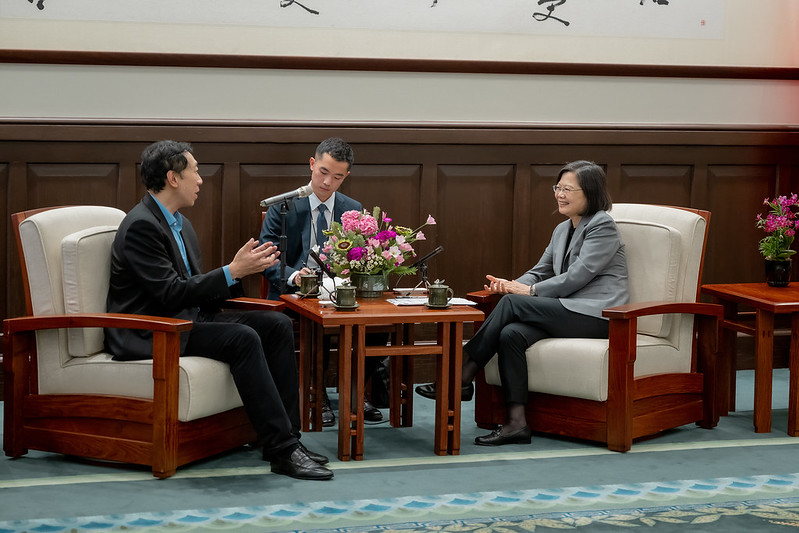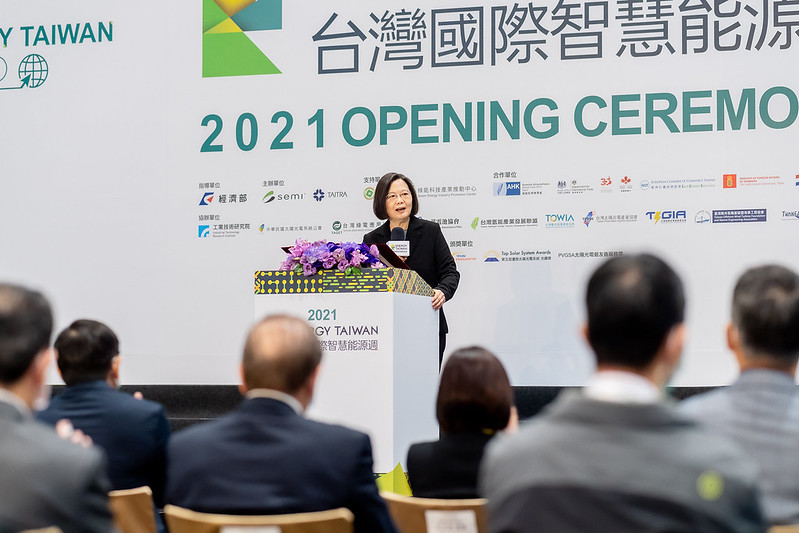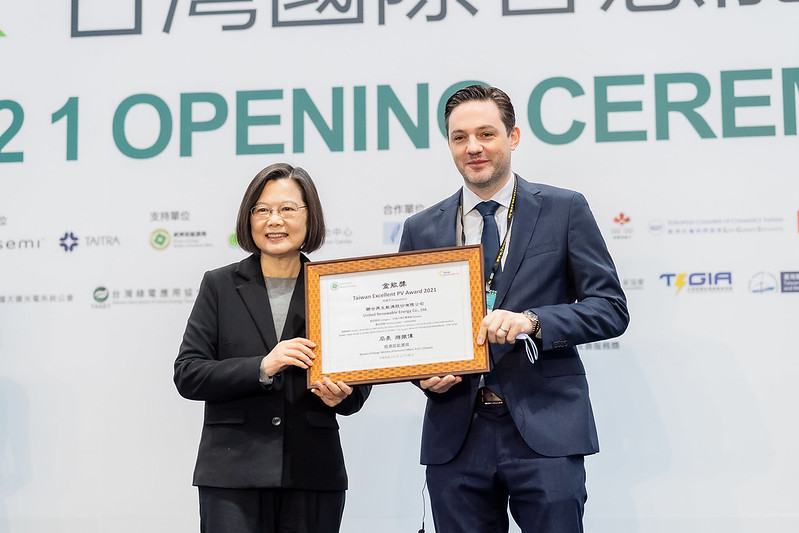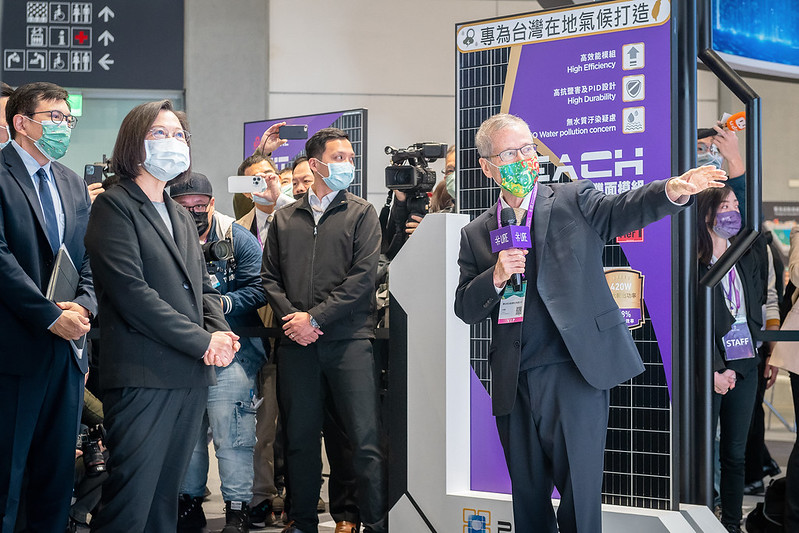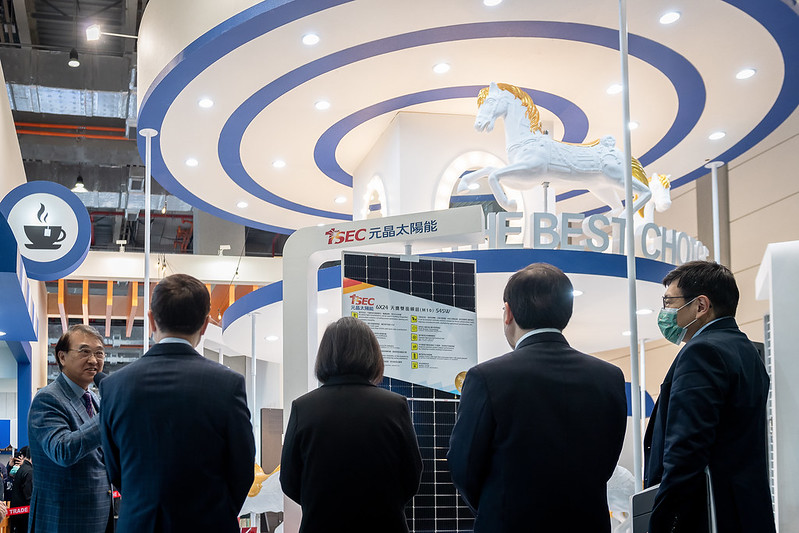News & activities
 News releases
News releases
On the morning of December 8, President Tsai Ing-wen attended the opening ceremony of the 2021 Energy Taiwan exhibition. In remarks, President Tsai stated that by 2025 domestic construction of wind and solar power installations is set to generate NT$1.7 trillion in investments, more than NT$2 trillion in output value, and 160,000 job opportunities. The president also said that the government is making every effort to make Taiwan the green energy hub of Asia, while speeding up and expanding our green energy rollout so that Taiwan's energy sector will be an indispensable link in the international green energy supply chain.
A translation of President Tsai's remarks follows:
We're all aware that one of the key issues at last month's COP26 was the goal of net-zero emissions by 2050. This goal has become a global consensus, and, going forward, countries around the world will be working toward reducing their carbon emissions. Transforming our energy sector is the key to reducing carbon emissions, and today's Energy Taiwan exhibition highlights Taiwan's determination and ability to develop renewable energy.
Each of you here is an important partner to our government in our joint effort to promote Taiwan's energy transition. I have participated in this exhibition's opening ceremony for four consecutive years, not just to show how important energy issues are for this administration, but also to thank all of you in person. Because of your efforts, Taiwan has been able to engage with the international community and contribute more to the world.
Climate change is a global challenge, and Taiwan is joining the global response. The Environmental Protection Administration is currently working on amendments to our nation's Greenhouse Gas Reduction and Management Act, including writing the 2050 net-zero goal into law. And the Executive Yuan has set up a task force to evaluate possible paths toward net-zero emissions and draft a blueprint for our energy transition.
Today's exhibition is our domestic green energy industry's largest platform for exchange. I want everyone to know that our government is making every effort to realize our vitally important goal of making Taiwan the green energy hub of Asia.
In the future, global industrial demand for green energy will only continue to grow. This year, Taiwan began to implement provisions that will spur major power consumers to increase the proportion of renewable energy they use within five years. The EU Carbon Border Adjustment Mechanism will also subject the carbon footprints of export products to more rigorous inspections. As such, many international enterprises have joined the RE100 initiative, under which they have committed to using 100-percent renewable energy in the future. Here, TSMC and UMC are among the companies which have joined RE100 and have acted on their green energy commitments.
I'm sure you all noticed that last week, SEMI released new data showing that Taiwan's firms spent over US$7.3 billion on semiconductor manufacturing equipment in the third quarter, setting a domestic record and making Taiwan the world's largest market for such equipment. This year, the output value of Taiwan's semiconductor industry is projected to surpass NT$4 trillion for the first time ever. Our semiconductor industry is indeed thriving. To meet urgent industry demand for green energy, our government is speeding up and expanding our green energy rollout, and is helping make Taiwan's energy sector an indispensable link in the international green energy supply chain.
I also want to share with you that Taiwan's solar energy installed capacity has grown by a factor of 4.7 over the past five years, and our second offshore wind farm has also started operation. We expect that, through 2025, wind and solar power construction projects in Taiwan will generate NT$1.7 trillion in investments, more than NT$2 trillion in output value, and 160,000 job opportunities.
To further progress and develop, Taiwan must continue to promote the transformation of our energy sector. To reach our long-term goal of net-zero emissions, we need to use natural gas in this transitional period and build a more flexible and responsive power supply network. Building the third liquefied natural gas import terminal will help relieve the imbalance created by generating power for northern Taiwan in central and southern Taiwan, and will also reduce air pollution in central and southern Taiwan. This facility is crucial to Taiwan's energy sector and to achieving net-zero emissions.
We all know how important energy is to our nation's economic development, industrial competitiveness, and people's everyday lives. So, however difficult this energy transition may be, our government will continue to engage with people throughout society to jointly resolve any issues we might encounter. I hope we can combine our collective strengths and resolutely forge ahead on this path.
In closing, I want to thank the organizer and co-organizers for their efforts to expand the scope of this exhibition every year. I also want to congratulate today's award winners, and thank each of you for your contributions to transforming Taiwan's energy sector. Let's continue to work together toward this goal. Thank you, and I wish you all a successful exhibition.
Following her address, President Tsai presented the SEMI Taiwan Industry Contribution Awards, Taiwan Excellent PV Awards, Top Solar Awards, and PVGSA Renewable PV Power System Promotion Awards to awardees and firms. The president also visited the Copenhagen Infrastructure Partners, United Renewable Energy, and Taiwan Solar Energy Corporation exhibition booths and listened to presentations introducing their products.
Also in attendance at the exhibition were Vice Minister of Economic Affairs Lin Chuan-neng (林全能), Chairman of the Taiwan External Trade Development Council James C. F. Huang (黃志芳), SEMI Taiwan President Terry Tsao (曹世綸), and members of the diplomatic corps stationed in Taiwan.
